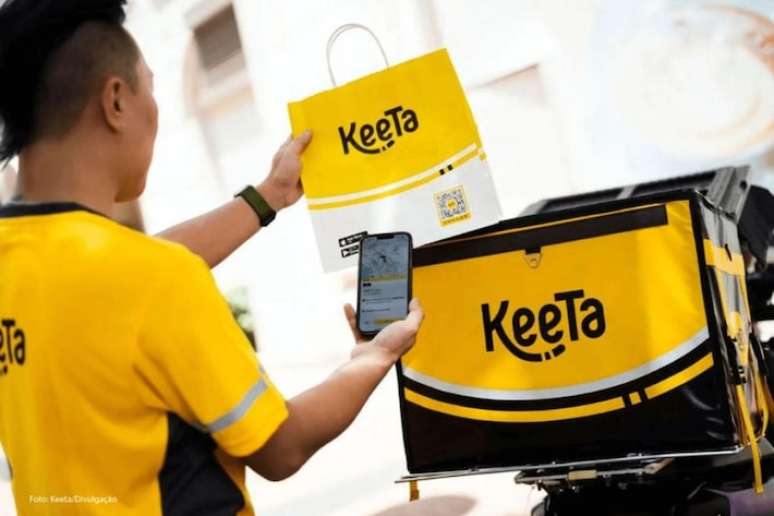Keeta said one competitor paid R$900 million more so that restaurant chains would not work with another platform; 99Food says it has “full confidence in the legality” of its practices
A decision by Justice of Sao Paulo has suspended the contractual clauses of 99Food with restaurant chains that prevented businesses from collaborating with the Chinese competitor Keetawhich entered the Brazilian market for delivery expected for October 30th.
The ruling by Judge Fábio Henrique Prado de Toledo, of the 3rd Economic Court of the Central Civil Court of São Paulo, published on Monday 20, also prohibits 99Food from signing new contracts with exclusivity clauses that limit the activity of competitors, under penalty of a fine of R$100,000.
In a statement, 99Food said it will appeal the decision because it wants to “continue to promote and collaborate in the debate to consolidate legitimate market development practices, foreseen by Brazilian legislation and recognized by economic regulators.”
“We have full confidence in the legality of our practices and, above all, in their concrete effects: expanding the food delivery market, generating demand and profitability for restaurants, expanding earning opportunities for delivery drivers, and offering convenience at fair prices to consumers,” the company said.
In the decision, the judge recognizes that exclusivity clauses are not illegal, as long as there is no discrimination against competitors. “The illegitimacy of the clauses in question derives, fundamentally, from their discriminatory nature and the unjustified targeting of a particular competitor,” the judge stated.
The practice used by 99Food was characterized by the judge as “naked moderation”, when there is no legitimate economic justification, but only the aim of eliminating competition.
“There is no evidence on record that the specific exclusion of Keeta is necessary to protect the defendant’s (99Food) investments, to enable its entry into the market or for any other legitimate business purpose. The defendant could, if appropriate, establish generic exclusivity clauses, applicable to all new entrants without distinction. It chose, however, to name the author (Keeta), revealing the purpose of simply excluding her,” the judge said.
99Food is part of the Chinese mobility company Didi Chuxing e resumed food delivery service in Brazil this year. Keeta belongs to the Chinese giant Meituan.
According to Keeta’s request to the Court, filed in August, 99Food offered at least R$900 million upfront to 100 restaurant chains in the country not to operate with other platforms. The decision that overturned the exclusivity clauses does not provide for the refund of the sums paid to the restaurants by 99Food.
According to the decision, the exclusivity clauses also prohibited partnerships with other companies belonging to the Meituan group, of which Keeta is part. In exchange, 99Food offered financial incentives for investments in infrastructure and marketing. If the restaurant did not comply, it would have to pay double the amount invested by 99Food.
The dispute between Chinese delivery platforms in Brazil is also under investigation Administrative Council for Economic Defense (Cade). To the court, the council said the investigation was still in its early stages.
Keeta said in a statement that he “obtained an important legal victory in defense of the free market in the Brazilian food delivery sector.” “Now restaurants, including those previously blocked by 99Food, are free to decide each day which platform offers the best service,” the company said.
Source: Terra
Rose James is a Gossipify movie and series reviewer known for her in-depth analysis and unique perspective on the latest releases. With a background in film studies, she provides engaging and informative reviews, and keeps readers up to date with industry trends and emerging talents.




-1jeadvgqd52k9.jpg)

